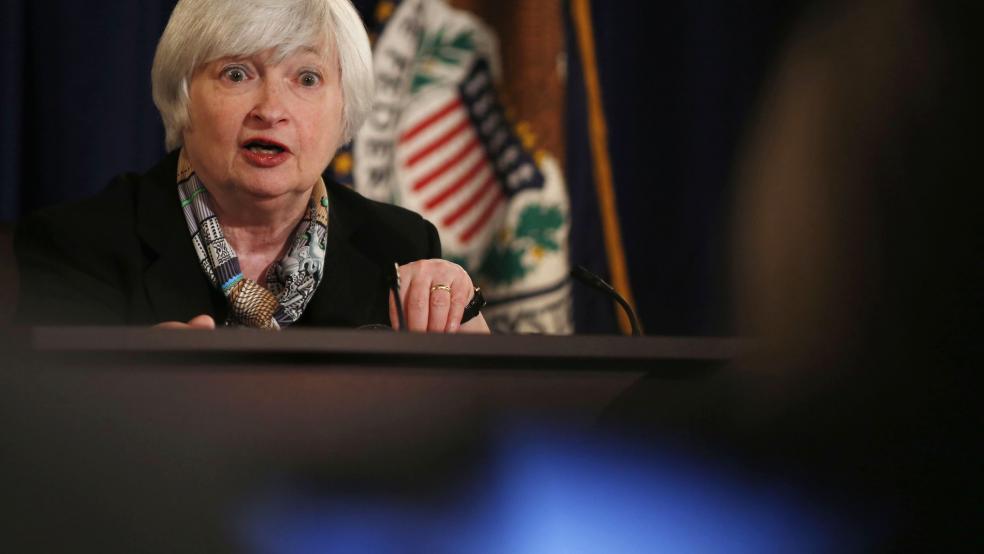Federal Reserve Chair Janet Yellen called for a "pragmatic" approach to U.S. monetary policy on Friday, amid calls by hawkish members of the central bank's policy committee for a quick rise in interest rates due to tightening labor markets and inflationary risks.
In a speech at the Fed's annual central banking conference, Yellen laid out in detail why she feels the unemployment rate alone was inadequate to evaluate the strength of the jobs market and why the central bank needed to move cautiously on raising rates. At the same time, she nodded to the concerns of some Fed officials who are growing uneasy with the sustained level of its monetary policy stimulus.
Related: Interest Rates Test Yellen's Powers of Persuasion
"There is no simple recipe for appropriate policy," Yellen said, arguing for a "pragmatic" approach that gives officials room to evaluate data as it arrives without committing to a preset policy path.
Ahead of her comments, a number of other top Fed officials had pressed their case for an early hike in benchmark rates, which have been held near zero since December 2008. Philadelphia Fed President Charles Plosser, a voting member of the Fed's policy panel this year, and two non-voters - St. Louis Fed President James Bullard and Kansas City Fed President Esther George - have all sounded warnings this week on the risk of the Yellen-led Fed falling behind the curve.
'Difficult Judgments'
Financial market reaction to Yellen's speech was muted, with prices for U.S. stocks largely unchanged. Yields on U.S. government debt rose a bit, as did the dollar. "Janet Yellen confirmed the majority view ... (that) much more labor recovery is needed before the Fed raises policy rates," said David Kotok, chairman of Cumberland Advisors in Sarasota, Florida.
Yellen's speech in Jackson Hole included lengthy references to the possibility that labor markets may in fact be tighter then they seem, and that the Fed may be at risk of having to raise rates sooner and faster than expected. But, overall, it marked a defense of her basic premise that significant slack remained in the jobs market, even though she said the 2007-2009 financial crisis and recession damaged the economy and work force in ways that are not fully understood.
Related: 30 Percent of 'Retirees' Would Return to Labor Force
The Fed has said it would wait a "considerable time" after winding down a stimulative bond-buying program in October before raising rates. Financial markets currently expect a rate hike around the middle of next year. The debate over Yellen's evaluation of labor markets - and over when to raise borrowing costs - is intensifying within the Fed's policy committee.
At the central bank's last policy meeting in July, some officials argued against characterizing the amount of slack in the labor market as "significant," which the Fed did in its post-meeting statement. Many officials agreed that characterization may have to change soon.
Determining the degree of labor market slack has become the central debate at the Fed. Yellen wants to be sure employment has recovered as fully as possible before raising rates. In contrast, the inflation "hawks" worry that more months of near-zero rates will cause inflation or possible asset bubbles.
Yellen reiterated that the Fed could raise rates sooner than currently expected if the labor market improves more rapidly, but also said it could tighten monetary policy later if the economy disappoints. The Fed will have to make "difficult judgments about the cyclical and structural influences in the labor market," she added.
With reporting by Howard Schneider, Michael Flaherty and Jonathan Spicer, and additional reporting by Luciana Lopez in New York, all of Reuters.




